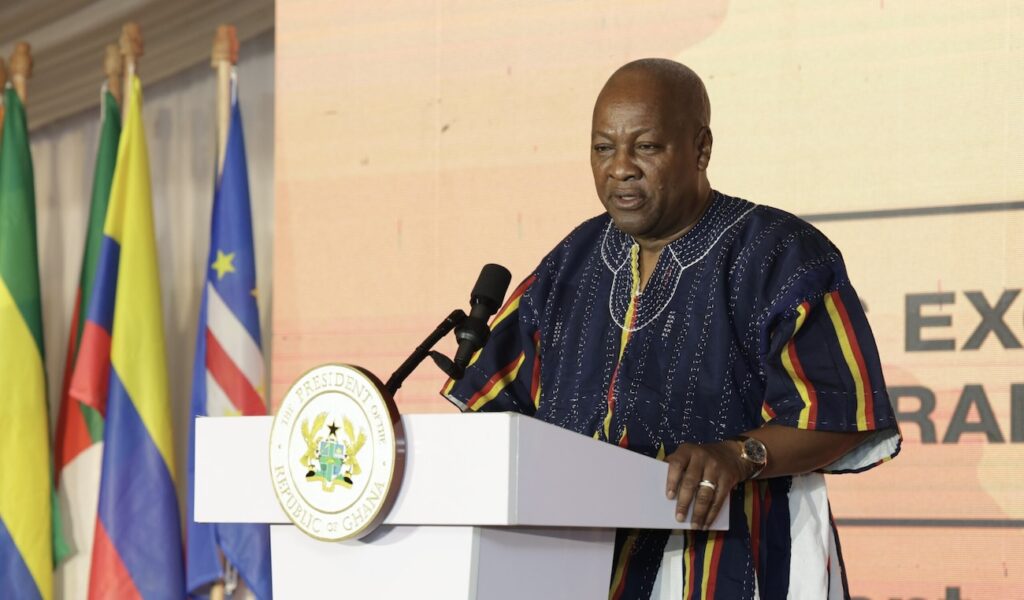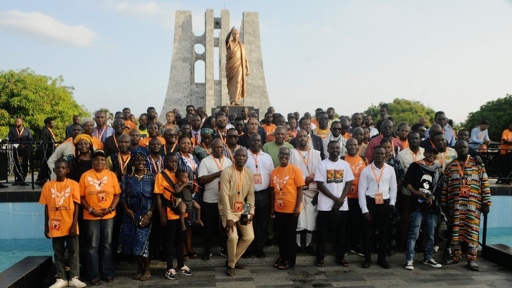Asserting the “inalienable right of Africans and people of African descent to full reparations” for “slavery, colonialism, apartheid, and systemic exploitation”, an international Pan-African conference on November 18 and 19 adopted the Accra Declaration on Reparatory Justice.
Mandating the establishment of a “Pan-African Reparatory Justice Coordinating Committee” and laying out the next steps to be taken, the Accra declaration signalled “a new era of coordinated global action on reparatory justice,” said the Pan-African Progressive Front (PPF).
A global platform undertaking research, advocacy, and grassroots mobilization to strengthen the Pan-African movement, the PPF organized this event to commemorate the 80th anniversary of the historic 5th Pan-African Congress in October 1945 in Manchester, England.
Over 250 delegates from across Africa and African communities in the Caribbean, the Americas, and Europe gathered for this conference at the Kwame Nkrumah Mausoleum in Ghana’s capital, Accra. Among the 10 high-level representatives was Ghana’s President John Mahama.
From colonialism to neo-colonialism
“Eighty years ago… the Fifth Pan-African Congress became the turning point that accelerated the liberation of our continent from colonial domination,” he said in his keynote address. “Our generation faces new forms of domination, some subtle, some obvious,” he added.
How to combat the neocolonial policies of the West, and stop its corporations from plundering Africa’s natural resources, was among the key questions discussed after an address titled “Africa’s Underdevelopment: From Colonialism to Neo-Colonialism”, by the Vice President of Islamic University College of Ghana, Dr. Gamel Nasser Adam.
Delegates also deliberated on how Africa can break free from the new forms of imperialist domination engineered through the debt trap laid by the IMF and the World Bank.
Repatriations: “a historical, legal, and developmental necessity”
A report titled “Reparations and Restitution: Africa’s Case Against Centuries of Plunder”, presented by PPF Coordinating Committee member Kwesi Pratt Jnr, formed the basis for deliberations after which delegates adopted the Accra Declaration.
Deeming repatriations by colonizers “a historical, legal, and developmental necessity”, delegates proposed the establishment of a “unified legal institution to calculate damages and file claims in international courts”.
“The transatlantic slave trade was a crime… a genocide,” Pratt told Sputnik Africa. “Colonialism perpetrated” this crime, “destroyed our culture, destroyed our religious institutions, destroyed our educational institutions, made perpetrators of crime civilizers and victims of crimes uncivilized.”
“This ought to be reversed, and to reverse that,” it is an imperative to build the institutions “which will calculate the harm caused to us,” he said. “The cost of the crime”, he added, should be calculated taking into account the enormous wealth accumulated by former colonial powers, while “we are poor because of the crimes of slavery, crimes of colonialism, and crimes of today’s neocolonialism.”
To bring the colonial West to the negotiating table, the Declaration called for “engagement with the African Union”, Economic Community of West African States (ECOWAS), Caribbean Community (CARICOM), and other relevant global bodies.
It also stressed the need to simultaneously mobilize African “youth, women’s groups, civil society, traditional authorities, and diaspora networks.”
Calling for the creation of “a single African reparations fund to manage the receipt and fair distribution of funds,” delegates stressed the need for continental unity in action.
The League of African Free Movement
Proposing a practical step toward continental unity, Ghana’s President Mahama used his keynote address to unveil the plan for the establishment of the “League of African Free Movement”.

Ghanaian President John Mahama speaking at the PPF conference. Photo: PPF
He announced that he would be formally writing to the heads of the participating states in this bloc, envisaged to initially constitute seven member states, whose citizens can travel to each other’s countries without requiring visas.
Calling it “a shame that we still have to travel to each other’s countries asking for a visa”, Mahama said such a bloc would be a practical step toward African unity.
The post “Inalienable right of Africans and people of African descent to full reparations”, asserts Accra Declaration appeared first on Peoples Dispatch.
From Peoples Dispatch via this RSS feed


